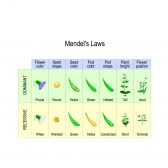Definition
noun
A passive immunity acquired by the fetus or newborn from the mother via the placental transfer of antibodies during pregnancy and via breast milk. This type of immunity is short-lived, lasting the first six months of the newborn’s life.
Supplement
Adaptive immunity is divided into two types: natural immunity and artificial immunity. Natural immunity is further divided into natural passive immunity and natural active immunity. Artificial immunity can also be divided into artificial passive immunity and artificial active immunity.
Passive immunity is typically short lived (compared to active immunity). Passive immunity may be naturally acquired or artificially acquired. Maternal passive immunity is one type of naturally acquired passive immunity wherein the maternal antibodies are passed through the placenta to the fetus during the third month of gestation. Another means is by passing the antibodies in the breast milk when breastfeeding.
Compare: natural active immunity, artificial passive immunity
See also: passive immunity
Dictionary > Natural passive immunity
You will also like...

Abiotic Factors – Water Conditions
A still body of water may be disturbed by a variety of factors. One of them is wind. In fact, it is considered as the pr..

Population Growth and Survivorship
This lesson looks at population attributes, regulation, and growth. It also covers population genetics, particularly gen..

Regulation of Organic Metabolism, Growth and Energy Balance
The human body is capable of regulating growth and energy balance through various feedback mechanisms. Get to know the e..

Non-Mendelian Inheritance
In this tutorial, find out more about certain types of inheritance that does not follow the Mendelian inheritance patter..

Mendel’s Law & Mendelian Genetics
One of Mendel’s law of inheritance is the “law of dominance”. Read this tutorial to know more about this form of i..

Gibberellins and Gibberellic Acid
This tutorial describes the role of gibberellin family in plants. Find out the effects of gibberellin on plant growth an..

